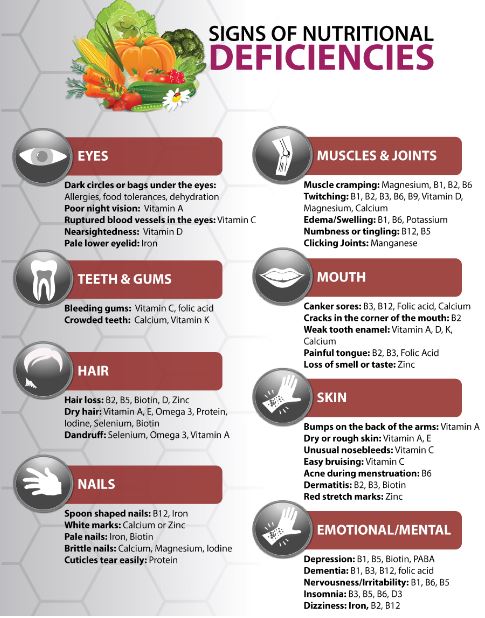

Supplementing for specific needs is a personalized approach to health and wellness, designed to address individual nutritional gaps and support specific health objectives. It’s about understanding your body’s unique requirements and providing the necessary nutrients to optimize function and achieve targeted health goals. Many people struggle with achieving a balanced diet, leading to potential deficiencies in essential nutrients. Targeted supplementation aims to bridge these gaps, fostering overall health and well-being. This guide will explore how to effectively supplement for your specific needs, focusing on targeting deficiencies and achieving health goals. We’ll cover everything from identifying nutritional gaps to creating a personalized plan and understanding potential interactions with existing medications. We’ll also discuss the importance of consulting healthcare professionals for personalized recommendations and guidance.
Identifying Nutritional Deficiencies
Understanding Your Dietary Intake
It’s crucial to honestly assess your dietary intake to identify any potential nutritional gaps. A balanced diet rich in fruits, vegetables, lean proteins, and whole grains is often sufficient for meeting most nutritional needs. However, factors such as dietary restrictions, food allergies, or busy lifestyles can lead to imbalances. Keeping a food diary for a week or two can be a helpful tool to visualize your current eating habits. Consider tracking portion sizes, types of foods consumed, and potential deficiencies in important vitamins and minerals. A nutritional assessment by a registered dietitian or healthcare professional can provide valuable insights into specific areas needing attention.
Recognizing Symptoms of Deficiencies
Beyond dietary tracking, consider possible symptoms of deficiencies. Fatigue, weakness, hair loss, skin problems, and impaired immune function could all be associated with specific nutrient deficiencies. However, these symptoms can sometimes overlap with other conditions, so it’s essential to consult with a healthcare professional for accurate diagnosis. They can assess your individual circumstances and recommend appropriate testing and further evaluation. This approach ensures you are targeting the actual issue, not just treating symptoms.
Targeting Deficiencies with Supplements
Essential Vitamins and Minerals
Various vitamins and minerals play crucial roles in bodily functions, from supporting immune responses to maintaining bone health. Common deficiencies include vitamin D, vitamin B12, iron, calcium, and magnesium. A healthcare provider can run blood tests to accurately assess your levels of these nutrients and determine if supplementation is necessary. It’s essential to choose reputable brands and understand the appropriate dosage based on individual needs. Always consult a doctor before starting any new supplementation regimen. Do not self-medicate.
Specific Supplements for Health Goals
Beyond addressing deficiencies, supplements can be strategically used to support specific health goals. For example, omega-3 fatty acids can support heart health, while probiotics can promote gut health. Researching the specific benefits and potential risks of these supplements is crucial. Choosing high-quality, reputable brands is essential for optimal results and to avoid potential contaminants. Be cautious of exaggerated claims or marketing ploys and always prioritize professional guidance.
Creating a Personalized Supplement Plan
Considering Individual Needs
Creating a personalized plan involves considering various individual factors. These include your age, sex, activity level, medical history, and any existing dietary restrictions. Understanding these factors allows for a more targeted approach to meeting specific nutritional requirements. A registered dietitian or healthcare professional can help tailor a plan to your particular needs.
Implementing the Plan and Monitoring Progress
Implementing the plan consistently and monitoring your progress is essential. Regular check-ups with your healthcare provider are recommended to assess the effectiveness of the plan and adjust it as needed. Tracking your symptoms and noting any improvements or changes is also valuable.
Understanding Potential Interactions and Safety
Drug Interactions
Some supplements may interact with medications you’re currently taking. Therefore, it’s crucial to inform your healthcare provider about all medications and supplements you’re using. They can assess potential interactions and recommend adjustments to your plan if necessary. This step is particularly important when considering long-term use or combination therapies.
Side Effects and Precautions
Like any medication, supplements may cause side effects. Knowing potential side effects and proactively addressing them is key to a smooth transition. Always start with a low dosage and gradually increase as recommended by your doctor. If you experience any unusual symptoms or adverse reactions, contact your healthcare provider immediately.
Maintaining a Healthy Lifestyle
Importance of Diet
Supplementation is just one piece of the puzzle when it comes to achieving optimal health. Maintaining a balanced diet rich in whole foods remains paramount. Supplements are not a replacement for a healthy diet and lifestyle. Prioritize whole foods over supplements wherever possible.
Exercise and Stress Management
Regular exercise and stress management techniques, such as meditation or yoga, contribute to overall well-being and play a crucial role in supporting your health goals.
Frequently Asked Questions
What are the most important nutrients to check for deficiencies?
Many nutrients contribute to optimal health. Essential vitamins and minerals, such as vitamin D, vitamin B12, iron, calcium, and magnesium, should be monitored regularly. However, individualized assessments are critical. Consult a healthcare professional for a thorough evaluation based on your unique needs.
What are the best supplements for improving heart health?
Omega-3 fatty acids are often recommended for supporting heart health. However, specific recommendations should be made by a healthcare professional who can take into account your unique needs, current health conditions, and other medications.
How long should I take supplements before expecting results?
The duration required for seeing results from supplements varies significantly depending on the specific supplement, individual needs, and underlying conditions. It’s essential to monitor your progress and consult with a healthcare professional to make adjustments to your plan as needed.
In conclusion, supplementing for specific needs is a crucial aspect of maintaining optimal health. By understanding your individual requirements and consulting with a healthcare professional, you can create a tailored supplementation plan. Remember, supplements should be viewed as a complement to a balanced diet and healthy lifestyle, not a replacement. Consult a qualified healthcare provider before starting any new supplement regimen, especially if you have underlying health conditions. Take control of your health today and explore the possibility of supplementation to meet your specific needs and health goals.